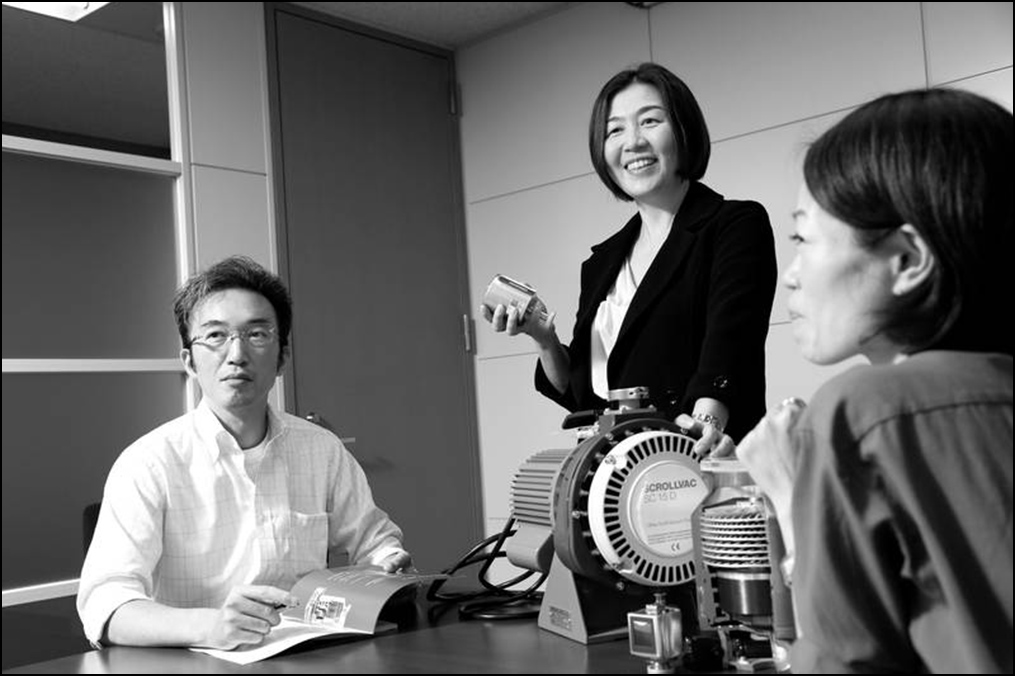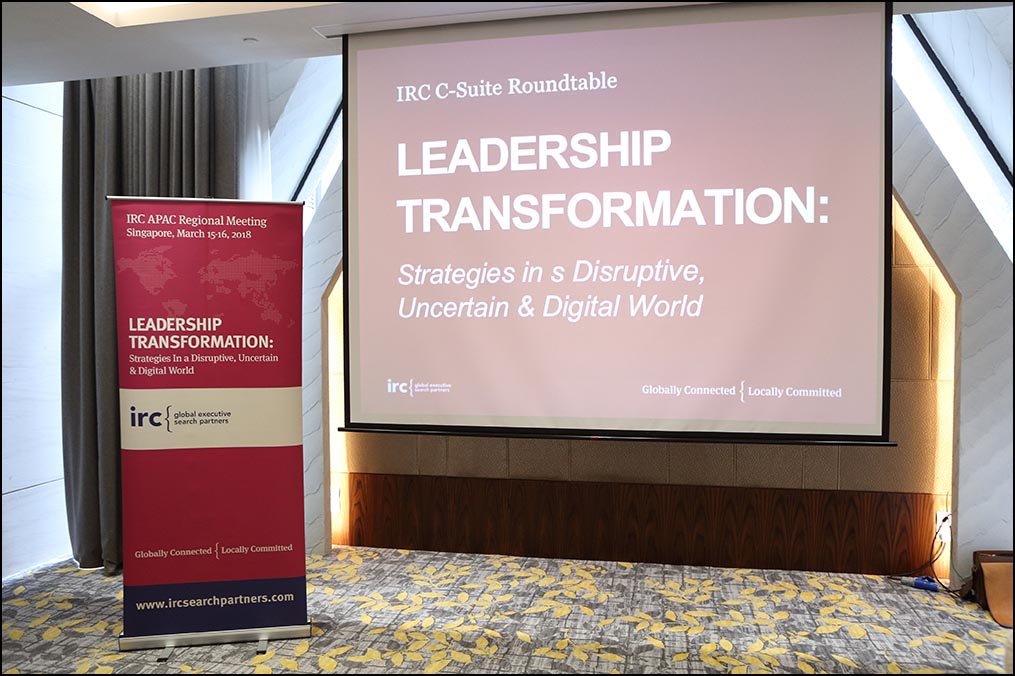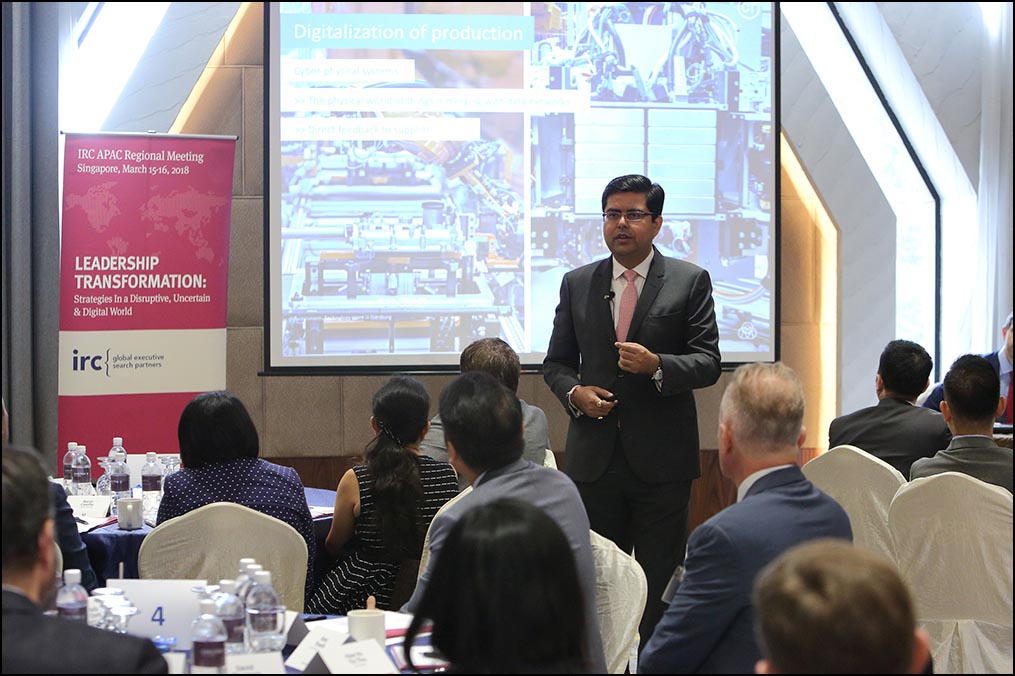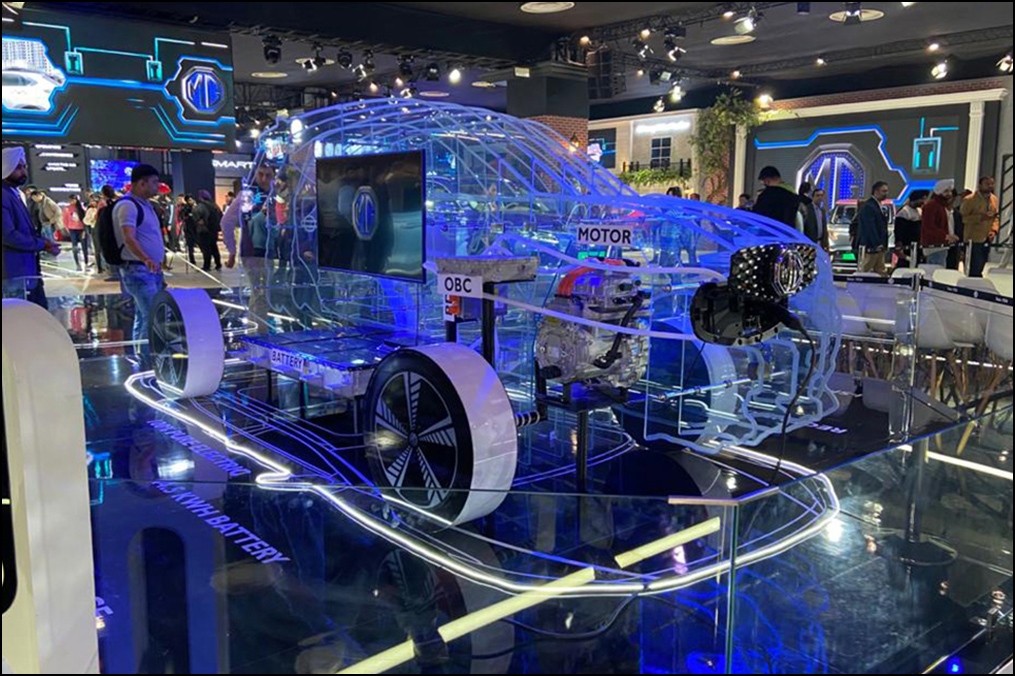Courage to break Japan’s glass ceiling
Notwithstanding substantial gains made in the West over the past several decades to level the playing field and bring about greater equality between men and women, pay gaps persist, and in many countries, corporate leadership remains heavily dominated by men.

Japan continues to be one of the most patriarchal societies on earth, the dominant role of men deeply rooted in its history and culture and readily evident in statistics that reveal a dearth of female talent in the top positions of the country’s largest companies. Yet, with an ageing population and a growing scarcity of qualified senior talent in the market, women are at last breaking the barrier, often finding that the glass ceiling is as much self-imposed as it is tradition.
Executive Summary
• Aim high: Women who strive for greater responsibility in the workplace will be rewarded as organisations embrace greater inclusiveness and gender equality, even in traditionally male-dominated industries
• Lose the baggage: Cultural restrictions on women are often as self-imposed as they are reinforced by society at large.
• Use HR as a stepping stone: Positions traditionally held by women, including human resource managers, can provide a strong foundation for upper management.
• Be the change agent: One of the world’s most male-dominated cultures is slowly becoming more inclusive in the face of an ageing population and a growing scarcity of senior-level talent.
• Tout inclusion to boost the bottom line: Companies that prioritize gender equality lay a strong foundation for growth in a global market where women will play an increasing role.
Hiroko graduated from State University of New York at Albany in 1992 before beginning her career in human resources at Toyota in 2004, where she remained for three years before stints with Nokia Japan and semiconductor manufacturer ASML Japan Co. In 2012, she joined Oerlikon Leybold Vacuum Japan, a subsidiary of Cologne, Germany-based Leybold, as HR Manager. The president of Leybold Japan departed three months after she joined, replaced by an interim president who oversaw the Asia Pacific (APAC) region and visited the Japan office only a few days per month, leaving Hiroko to manage matters far beyond the scope of her HR role in his absence.
When Atlas Copco acquired Leybold in 2016, Hiroko found herself managing the cultural change during the integration process. There was much anxiety and panic within the organisation, she said. Atlas Copco acquired Leybold with the intention of making the integrated company stronger, so there was a need for management to make this clear to the employees and also to raise staff concerns with management, she added. HR staff maintained an open-door policy with employees and held several communication sessions to lay the fears to rest, she said.
She was concerned about the staff in the midst of all the changes and felt strongly that there needed to be a President or Country Manager to drive the integration process. She approached the interim president, who she’d worked closely within the preceding years, and nominated herself as deputy managing director, to the surprise of her husband, who said he’d never heard of an HR manager being made managing director. The interim president responded well to her proposed solution to the integration challenges the company was facing and requested a formal proposal to seal the deal.
Hiroko’s experience covering for the interim president in his absence and accompanying him to business meetings when he was in town prepared her to oversee the company’s operations in the country and take responsibility for driving growth, but her learning curve was steep, nevertheless. “After my appointment, every day was a learning process,” she said, adding, “Every day I would have a ‘wow’ moment, and these are all learning opportunities.”
Hiroko had studied business administration but hadn’t previously been responsible for financial modelling and forecasting, skills that became paramount in her new role. She learned on the fly, with support from the financial controller, who shared his wealth of experience and quickly brought her up to speed. Having personally recruited 50% of Leybold’s team in Japan gave Hiroko confidence to step up and assume greater responsibility for the company’s success and the careers at stake, she said. “I felt responsible for their career paths within the company”.
Hiroko’s exposure to the highly competitive international business environment afforded her first-hand experience of the fragility of success and the need for effective internal communications. “My experience with Nokia, where I had to manage the downturn, made me realize that top brands can disappear from the market.” Her experience with ASML, on the other hand, had put Hiroko in the midst of a rapidly growing company that also required frequent communication with staff, in this case, to ensure retention, she said. “As the managing director, I have to be proactive in communicating and reaching out to employees; communicating on the goals, mission and task, as well as the how to achieve the goals”.
She shared, among the biggest changes brought about by the acquisition of Leybold was a shift in culture and management from highly centralized to decentralized decision-making. This change localized responsibility for the company’s performance in Japan, requiring a shift in the mindset of employees who had grown accustomed to carrying out directives handed down from headquarters in Germany. The previous model hadn’t spurred innovation, and Hiroko said she saw an opportunity to develop new strategies that would help the business grow.
At the same time, Hiroko became acutely aware of the lifestyle change that accompanied her own career growth into upper management. “The hard part of switching from HR to a business leader role is that it is 24/7, requiring you to always think about the business, even when on vacation,” Hiroko said, adding, “At the same time, it’s the most exciting career I’ve ever had.” She quickly adapted to the requirements of the job, shifting her focus to business performance. “In a commercial role, leaders need to be really strong, goal-oriented, assertive and firm; once they commit to something, they have to deliver it.”
Hiroko’s steep learning curve as Managing Director was supported by Atlas Copco’s mentorship program, “making the journey a little easier,” she said. As business unit vice presidents, the mentors support the managing director to achieve their individual and overall business targets, she noted. Her own experience being proactive in seeking career growth was mirrored in the corporate culture of the parent company, which encourages employees to self-nominate to take on new roles within the organisation. “They respect employees taking the initiative to manage their career within the organisation, and there is a support framework to help them to succeed in their new roles,” she said.
Atlas Copco is a progressive organisation based in Sweden, with many women in leadership roles at the company across the globe. Leybold too has a highly inclusive corporate culture with women occupying 50% of its senior-level positions, so the company’s management saw Hiroko’s rise to the top post in Japan as a natural progression. Many customers and distributors in Japan were taken aback, however, she said, surprised that she’d been appointed a managing director as a woman, and with a background in HR rather than in sales. “They politely congratulated me for my appointment, but some would challenge my ideas initially,” she said. After breaking the ice and engaging top management among her customers, however, Hiroko said she found other organizations yearning for more gender diversity and curious as to how they could foster a more inclusive culture themselves.
Hiroko also made waves among her industry peers, becoming the first female chairperson on the board of directors of the Japan Vacuum Association. Members of the association were dubious at first, she said. “In the very first association meeting, I was seated at the corner of a huge table, feeling really uncomfortable as everyone was looking at me,” she said, noting they seemed to be asking themselves, “Why is there a lady seated at the table and not making tea?” By the end of the meeting, however, as members exchanged business cards, several approached her, voicing their gratitude for the diversity she brought to the association. Hiroko became a poster child for the industry association, writing articles for the trade magazine and showcasing the diversity many companies in the industry purportedly subscribed to.
Diversity and inclusion are not national priorities in Japan, Hiroko said. Many companies aim for a more inclusive corporate culture, but gender equality requires government support from a legal framework perspective to encourage HR policies that enable women to balance work responsibilities with family life, she said. Many Atlas Copco Group customers in the Asia Pacific have a 20% target for women in leadership roles, but find it difficult to achieve this objective, Hiroko said. Atlas Copco itself hit the 20% target in 2018, which Hiroko described as a great achievement given many countries of the region have decidedly male-dominated cultures.
Perception is the most formidable barrier to achieving greater representation of women in senior positions, Hiroko said. Traditionally, men make the decisions in Japanese households and at companies, and the stereotypical roles reserved for women tend to hold them back, she added. To change this, the support system has to change, she said, and with the growing shortage of labour in the market, the roles available to women are expanding. Women need to be more assertive, to speak up when it comes to what they believe in and what they are passionate about, Hiroko said. The typical Japanese idiosyncrasy tends to be reserved, and people refrain from articulating their ideas, erring on the side of being polite in presenting ideas on behalf of the team rather than standing out to shine, she added.
At Leybold, there has been a shift in the culture, Hiroko said. Ladies in the office are more vocal now. They are more motivated, more aggressive than before. This gives the organisation a unique personality and culture, she added, where individual opinions are encouraged, which is having a positive impact on the business.
As a woman, Hiroko didn’t allow herself to be confined to a human resources role, nor did she allow her expertise in human resources to limit her career trajectory. Follow your heart, she advised, and establish a clear vision to achieve your goals without allowing perception and cultural baggage to weigh you down. “In our own way, we can make a difference in our workplaces if we have passion for our work, strive for our goals, and whenever possible, help another person on their journey.”
Get in touch with us
Need help? Drop your contact information and our consultants will contact you.
ENQUIRE NOW




